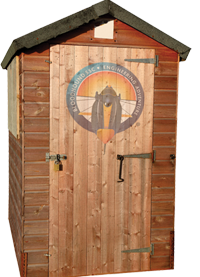The following column was prompted by a 2009 article in The Economist entitled ‘Cluster champs: How racing cars built an industry’, which can be found at http://mytct.co/cluschamps. In this response the Bloodhound project’s Dan Johns examines the implications for the Additive Manufacturing industry.
 The article linked to above gives readers a great view from the Economist, but I have a 'man-on-the street' view for why we (the AM community) will be successful...
The article linked to above gives readers a great view from the Economist, but I have a 'man-on-the street' view for why we (the AM community) will be successful...
I don't think we are learning from this historical view, and I don't think we ever do, because the root of it is intuitive and lies within people. If we take only the Economist view we would have missed the point that the race car industry actually grew out of the garden sheds scattered across the countryside. The oily mechanics got together at weekends to inhale petrol fumes and check out each others chrome curves, drink beer and then go home. All quite auto-erotic, some might say.
We are doing it (AM applications) intuitively and passionately so it comes as no surprise that the conditions are the same, which I would boldly suggest echoes back through all industry sectors. Wilbur and Orville Wright to note the dawn of the aerospace industry; again from a shed. A hobby. Those automotive guys in the ‘50s would have done the same — intuitively and passionately because they loved it. The Italians called them the ‘Garagistas’.
The economist, like researchers, will be looking in the rear view mirror to define the conditions for it’s success, but it’s actually more fundamentally and beautifully simple; it’s just down to people, their passion and being great at what you do. It’s infectious and creates it's own gravity that pulls people together (clusters). The spirit and dynamic relationships are based on the people. That’s what really happened to start the race industry and that is the same for us, AM and any other emerging technology or product. Look at Dyson, he revolutionised a whole vacuum cleaner industry because of his unhealthy (but passionate) interest in cleaning. Our pedigree is the same.
This ‘thing’, whatever ‘it’ is, is organic and cannot be replicated, cloned, processised or genetically modified. It is nature. People are nature, and sometimes these things just happen like that, and each case is unique. No science, history or business process needed. Just intuition to make innovation (both unpredictable and hated by the bankers). You can’t manage innovation, you just need to manage the conditions around it. Create the right atmosphere. It’s like knowing that lightening is going to strike and you want to harness the energy, so surely it would be better to predict the geographic area in which it will strike, and then cast out a grid of connected conductors all over a wide area so when it does strike, chances are that one of the conductors is hit and the whole grid is enlivened. I think we call this open collaboration from using clusters!
Us guys on the street don’t read the economist, watch the news or debate on politics to plan where we are going or predict what is the ‘next big thing’. We just do what we do because we like doing it. That's how industries start and why economists, accountants and lawyers get jobs. Just don't get me started on the value proposition of a accountant versus an engineer!
“Bring back the garden shed for grandad and grandson to practise hobbies in.” I said that to Richard Noble when discussing how he is using the Bloodhound project to get kids interested in engineering again. The project is penetrating the entire education system in the UK, to try and inspire our future generations to take up engineering and sciences. It is a fantastic mission and I am right behind it. Though I did point out that inspiration also starts outside of school and we have to get the domestic picture in line with this challenge. “Give people massive tax breaks for having a workshop at home,” I said. It’s where every single engineer, scientist and inventor first graduates — from the shed (Airfix, Hornby, The Grass Hopper RC car, fix the bike, use a pillar drill, a lathe, a mill — just bloody make something!), oh and a global ban on Mii-Game-Box-Stations wouldn't go amiss either.
No practical making skills developed, no economy from engineering — sorry but it is that fundamental. We are now drifting into my social observations about getting families to stay together so that grandad does have a relationship with his grandson in order to work in the shed. It’s mission critical for any sustainable economy and is a pivotal point in knowledge transfer during a child’s development.
I recall attending an Advanced Engineering event hosted by Williams F1 and have pondered the question posed to me at the bar by Peter Mathews and Lord Mervyn Davies:“How do we close the economic gap with engineering and create a knowledge driven economy?” They even suggested going for a beer sometime to discuss it, but since I now know the answer lies with grandad in his garden shed then they can save their beer money and invest in B&Q instead.
So do we have the right conditions for success? Yes. We have the grandad’s of this technology here in the UK, we have a shed, and it’s got stuff inside it to play with.
Job done as far as I am concerned. Cuppa?


